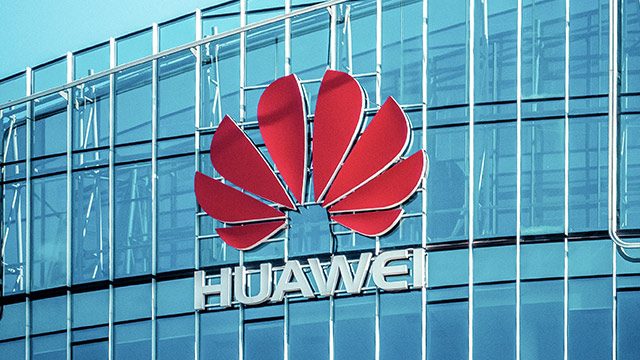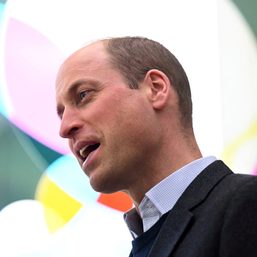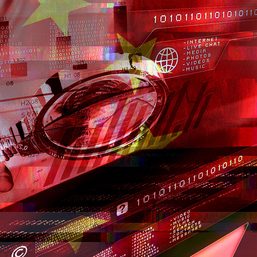SUMMARY
This is AI generated summarization, which may have errors. For context, always refer to the full article.

Britain on Tuesday, July 14, bowed to US pressure and approved the phased removal of Chinese telecoms giant Huawei from its 5G network despite warnings of retaliation from Beijing.
The policy reversal hands a major victory to US President Donald Trump’s administration in its geopolitical and trade battle with China.
The White House said the decision “reflects a growing international consensus that Huawei and other untrusted vendors pose a threat to national security, as they remain beholden to the Chinese Communist Party”.
But the move threatens to further damage Britain’s relations with the Asian power and carry a big cost for UK mobile providers that have relied on Huawei equipment for nearly 20 years.
Huawei called it “politicized” and likely to put Britain “in the digital slow lane”.
China’s ambassador in London, Liu Xiaoming, called it a “disappointing and wrong decision.”
“It has become questionable whether the UK can provide an open, fair and non-discriminatory business environment for companies from other countries,” he wrote on Twitter.
Britain’s digital minister Oliver Dowden announced the move in parliament, after Prime Minister Boris Johnson chaired meetings with his Cabinet and the National Security Council.
“From the end of this year, telecoms providers must not buy any 5G equipment from Huawei,” he told lawmakers.
The new guidelines also require all existing Huawei gear to be stripped out by the end of 2026.
Huawei had been reportedly pushing for the full ban to take effect after the next general election scheduled to take place in 2024 at the latest that could potentially bring a new government to power with a more sympathetic approach.
US sanctions
Johnson infuriated Trump and upset some members of his own Conservative party by allowing the Chinese 5G leader to help roll out Britain’s speedy new data network in January.
The UK was then completing its tortuous departure from the European Union and looking to establish strong ties with powerful Asian economies that could fulfill Johnson’s vision of a “global Britain”.
But the Trump administration told the UK government that its decision imperilled intelligence sharing and could even result in the relocation of some US fighter jets from England.
Washington believes the private Chinese company could either spy for Beijing or shut down rival countries’ 5G networks in times of war.
Huawei has always denied this and pointed to two decades of cooperation with British security agencies that checked on the safety of its existing 3G and 4G networks.
The British review was triggered by new US sanctions in May that blocked Huawei’s access to US chips and semi-conductors at the heart of 5G networks.
The restriction raised the possibility of Huawei having to switch from trusted US suppliers to alternatives whose safety could not be guaranteed by UK security agencies.
Outages
Johnson is coming under growing political pressure to not only dump Huawei but also adopt a tough line with China for its treatment of Hong Kong and repression of ethnic Uighurs in the western Xinjiang region.
But he also pledged to voters last year to bring broadband access to all Britons by 2025.
British telecoms companies have warned that stripping out all existing Huawei equipment could cost them billions and take years to implement.
BT chief executive Philip Jansen said Monday that Britain could suffer “outages” and potential security risks if the sector was forced to stop dealing with the Chinese firm.
“If you were to try and not have Huawei at all (in 5G activities) ideally we’d want seven years and we could probably do it in five,” he said.
Dowden conceded Britons will now have to wait longer to get full access to the rapid new network.
“This means a cumulative delay to 5G roll-out of two to three years and costs of up to £2 billion ($2.5 billion, 2.2 billion euros),” he said.
“This will have real consequences for the connections on which all our constituents rely.”
But officials insisted that Huawei had managed to install only a “small amount” of equipment since the 5G system began being offered to UK consumers last year.
Huawei also said its UK chairman, former BP boss John Browne, stepped down early, giving two-months’ notice hours before the government’s final decision was announced. (READ: Huawei sales recover from coronavirus slump)
Johnson’s government originally allowed Huawei to roll out up to 35% of Britain’s 5G network under the condition that it stays out of “core” elements dealing with personal data.
Diversification
Johnson has challenged the Trump administration to come up with a reliable and cost-effective alternative to the Chinese firm.
Britain is pushing for the creation of a 5G club of nations that can pool their resources and provide individual components for an alternative solution that could be applied across the world.
The UK government said the process would begin with South Korea’s Samsung and Japan’s NEC – two veterans with broad production capabilities – while offering protection for Finland’s Nokia and Sweden’s Ericsson to ensure they remained viable players in the field.
Ericsson’s regional head Arun Bansal said his firm was “ready to work with the UK operators to meet their timetable, with no disruption to customers”.
Nokia’s chief executive for UK and Ireland, Cormac Whelan, said the firm also has “the capacity and expertise to replace all of the Huawei equipment in the UK’s networks at scale and speed”.
But UK officials caution that all existing players have some Huawei equipment in their supply chains that needs to be taken into account. – Rappler.com
Add a comment
How does this make you feel?





There are no comments yet. Add your comment to start the conversation.